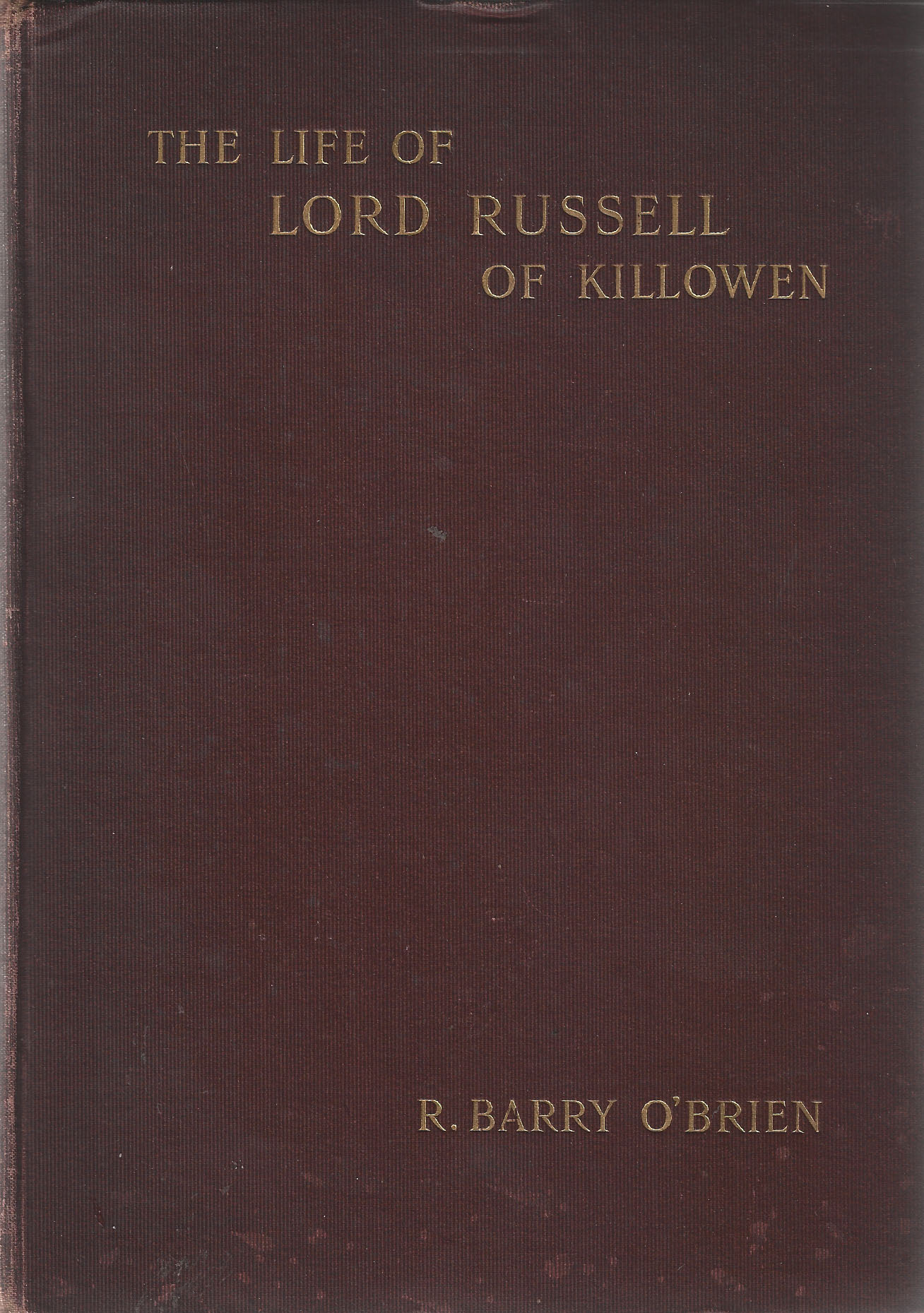
Out of Print
Charles Arthur Russell, Baron Russell of Killowen, GCMG, PC (10 November 1832 – 10 August 1900), was an Irish statesman of the 19th century, and Lord Chief Justice of England.
He entered the law offices of Messrs Denvir, Newry, in 1849, and of O'Rourke, McDonald & Tweed, Belfast, in 1852. Admitted a solicitor in 1854, he practised in the county courts of Down and Antrim, and became at once the champion of the Catholics who had resisted organised attempts at proselytising by Protestants in these counties.
His success was so striking that his legal friends urged him to become a barrister in London, and in 1856 he entered Lincoln's Inn. Having followed an extensive course by close private study under the direction of Maine, Broom, and Birkbeck, he was called to the Bar in 1859.
His success on the northern circuit soon recalled him to London, where he became a Queen's Counsel in 1872, and divided the mercantile business of the circuit with Lord Herschell. The increasing demand for his services may be judged by his fees which averaged £3000 a year from 1862–1872, £10,000 in the next decade, £16,000 in the third, and in 1893–1894, his last year of practice (while Attorney-General), reached £32,826.
His knowledge of law, business, and human character, a flexible and often passionate eloquence which derived its force from intense earnestness rather than oratorical device, marvellous dexterity in extracting the truth from witnesses, and a manifest honesty of purpose gave him a power over judge and jury which made him universally regarded as the first advocate of his age. He was a strong supporter of the cause of Mrs Florence Maybrick, whom he believed to have been wrongly convicted.